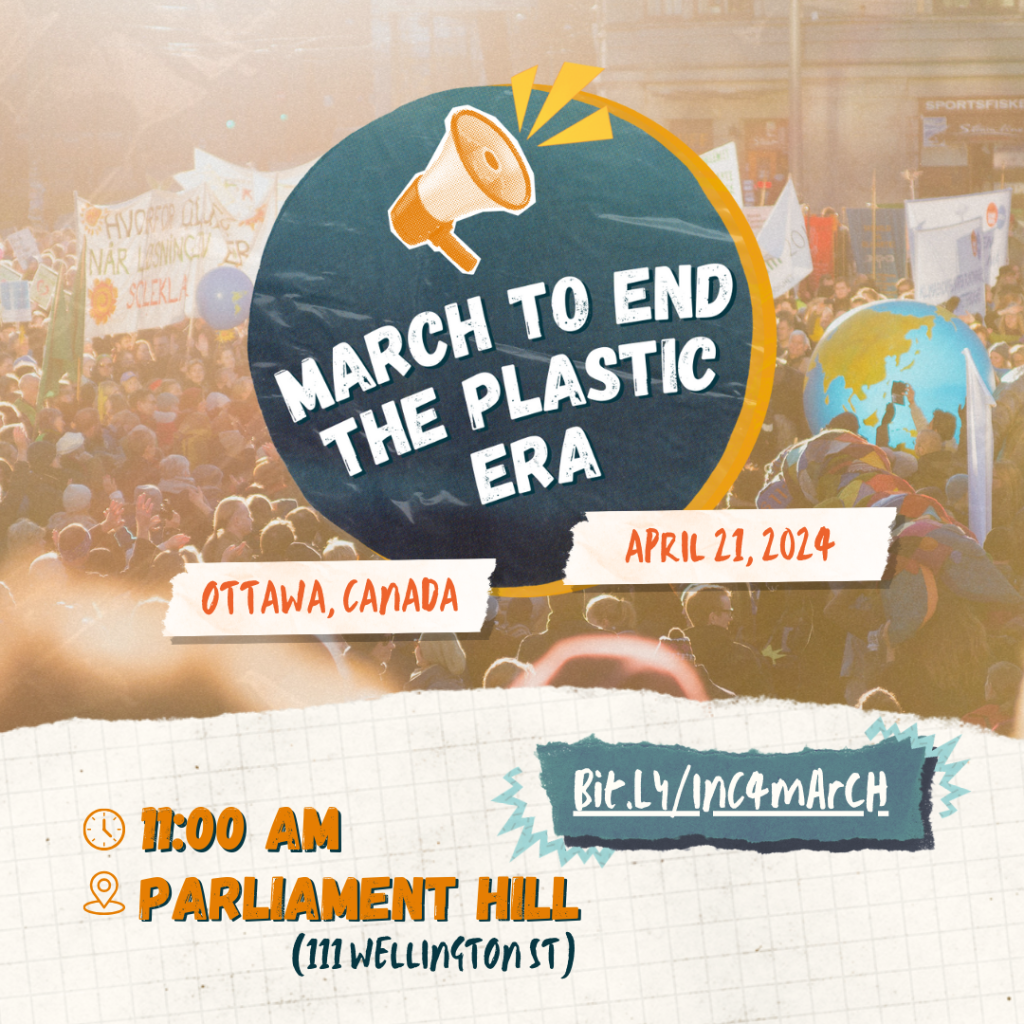
The world has a huge plastics problem.
There’s ample evidence that plastics contain toxic chemicals, break down into microplastics that harm our bodies and ecosystems, and contribute significantly to greenhouse gas emissions—because most plastics are fossil fuel-based, they’re a big part of the climate crisis. Curbing plastics is also a matter of social justice, as the production, use and “disposal” of plastics affects some communities disproportionately.
Dealing with the plastics problem is partly about individual action: individuals can choose plastic-free products and packaging when buying food, clothing, personal care and other items. To effectively tackle the problem, though, we need a systems approach; governments, industries and investors need to take action. The challenge is that many of these benefit from the plastics industry—an industry that is actually growing rapidly.
Here in Ottawa, we have a significant opportunity to help shift the plastics trend. Representatives from governments around the world will be meeting in Ottawa from April 23-29, 2024, in a fourth round of negotiations to develop a comprehensive and legally binding Global Plastics Treaty. Getting governments to come together to address the plastics crisis has been challenging, but an effective global treaty could reduce the amount of plastic being produced, centre the people and communities most affected, and require governments to act.
Environmental groups are organizing a March to End the Plastic Era on Sunday, April 21, 2024, starting at 10:30 a.m. on Parliament Hill. They’re inviting people to join them to call for effective and equitable action. Find out more, and register to participate, here.
In preparation for the March, Fridays for Future Ottawa is also hosting an Art Build and Poster Making event on Saturday, April 20, 2024 from 11 a.m.-2 p.m., during the Centretown Community Association’s Earth Day event in Dundonald Park. See the event page for details and registration.
[Edited:] You can also call on the Government of Canada to take action to eliminate plastics and end subsidies to the industry; see the petitions on the Environmental Defence and David Suzuki Foundation websites.
“For far too long, fossil fuel companies have viewed plastics as a Plan B for their dying industry. The entire plastics life cycle comes at the expense of human life and our fundamental rights to health and the environment, and our climate — especially for Black, Brown, Indigenous, frontline, and under-resourced communities.
The Global Plastics Treaty has the potential to stop the plastic pollution crisis at the source — but only if governments truly step up and uphold their responsibility to the people, environment, wildlife, and the climate.”
#BreakFreeFromPlastic website
The March to End the Plastic Era coincides with Earth Day, April 22. This year, the focus of Earth Day is “to end plastics for the sake of human and planetary health.” The Earth Day organization is inviting people to sign a petition for international action to eliminate plastic pollution.
[Edited to include additional events:] Other Earth Day 2024 events happening in neighbourhoods across Ottawa include the Centretown festival in Dundonald Park, a free market at the Ottawa Public Library, Re4M’s eco-market, an Ottawa Tool Library repair cafe at City Hall, a guided walk and nature-themed little library launch in Hampton Park, environment-themed community events in River Ward and elsewhere, a community choir concert in support of Foodsharing Ottawa, tree care with Forêt Capitale Forest, a film screening, a canvass of Old Ottawa South to encourage the City to ban fossil fuel ads, a webinar on the environmental consequences of building a new prison on farmland in Kemptville, neighbourhood and shoreline clean-ups, and more. (Check the links for specific dates, times, and further information.)



